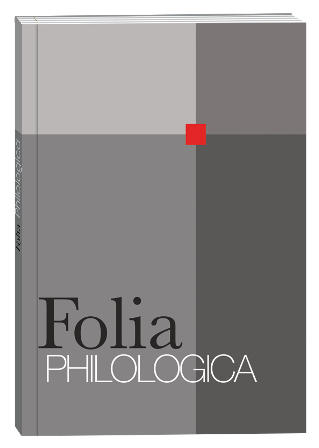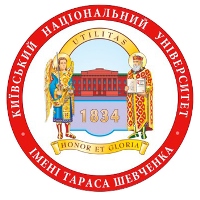THE TRANSLATION MISSION OF MYKOLA LUKASH IN THE DEVELOPMENT OF THE UKRAINIAN LANGUAGE CULTURE
DOI:
https://doi.org/10.17721/folia.philologica/2023/6/3Keywords:
Mykola Lukash, mission, Ukrainian language culture, baroque literatureAbstract
The relevance of the article is determined by the general focus of translation studies on the research of the heritage, as well as the practice of artistic translation of the Ukrainian theoretician Mykola Lukash. In fact, in translation studies, the author's method of translation of baroque literature in the polysystem of the Ukrainian literature still remains vaguely defined. The analysis of the influence of the translated baroque literature on the creative and life paths of the artisttranslator seems to be promising. The purpose of the study is to reveal Mykola Lukash’s translation mission as a significant figure in the history of the Ukrainian translation and development of Ukrainian language culture. Comprehensive understanding of the history of the Ukrainian literature, as well as its culture and people is not possible without an overall study of the history of the Ukrainian artistic translation, as well as the Ukrainian translation studies in general. The defender of the Ukrainian culture and, in particular, the language, the ascetic translator Mykola Oleksiyovych Lukash, takes a prominent position in the research. Acting as a mediator, the translator M. Lukash explains the incomprehensible, reveals the author to a new community. He often changes the established view of the work as an obvious and complete thing, convinces everyone with a fresh and deeper interpretation, cancels errors of perception. His characteristic was a bold approach to solving difficult translation tasks, he often experimented with linguistic means. The creative legacy of the master of the Ukrainian translation, M. Lukash, has always aroused the increased interest of specialists in his author's innovations, dominant features of the individual style and method of translation of a certain literary direction and genre. Actually, the translation of baroque literature, the specificity of which is the contrast between reality and illusions, heterogeneous combination of the tragic and the comic, the sublime and the vulgar, the terrible and the funny, i.e. the combination of the book and the folk, the sacred and the profane, brought M. Lukash to a completely new level as after the release of these translations, a language revolution took place in the field of professional translation.
References
Andriyenko, V.P. (2003). Ukrayinska shkola perekladu [Ukrainian school of translation]. Simferopol: RVV ТЕІ [in Ukrainian].
Zorivchak, R.P. (2001). Khudozhniy pereklad v Ukrayini i buttya natsiyi. Sproba istoryko-literaturnoho osmyslennya [Literary translation in Ukraine and the existence of the nation. An attempt at historical and literary comprehension] Zapysky “ Perekladatskoyi maysterni 2000–2001” [Notes of the “Translation Workshop 2000-2001”]. P. 9–17. Lviv [in Ukrainian].
Kochur, H. (2008). Literatura ta pereklad: Doslidzhennya. Retsenziyi. Literaturni portrety. Interview [Literature and translation: Research. Reviews. Literary portraits. Interview]. Vol. 1–2. Kyiv: Smoloskyp [in Ukrainian].
Savchyn, V.R. (2014). Mykola Lukash – podvyzhnyk ukrayinskoho khudozhnoho perekladu [Mykola Lukash is an ascetic of Ukrainian artistic translation]. Lviv: Litopys [in Ukrainian].
Strikha, M. (2006). Ukrayinskyy khudozhniy pereklad: mizh literaturoyu i natsiyetvorennyam [Ukrainian literary translation: between literature and nation-building]. Kyiv: Fakt, Nash chas [in Ukrainian].
Tsymbalyuk, T.V. (1996). Mova perekladu Mykoly Lukasha: Frazeolohiya romanu Mihelya de Servantesa Saavedry «Don Kikhot» [The language of Mykola Lukash’s translation: Phraseology of the novel "Don Quixote" by Miguel de Cervantes Saavedra]. Kyiv: Dovira [in Ukrainian].
Cherednychenko, O.(2009) Perekladatskyy dorobok Hryhoriya Kochura [Translation work of Hryhoriy Kochur]. Vsesvit, № 7–8. Retrieved from https://www.vsesvit-journal.com/old/content/view/578/41/ [in Ukrainian].
Shmiher, T. (2009). Istoriya ukrayinskoho perekladoznavstva XX storichchya [History of Ukrainian translation studies of the 20th century]. Kyiv: Smoloskyp [in Ukrainian].









